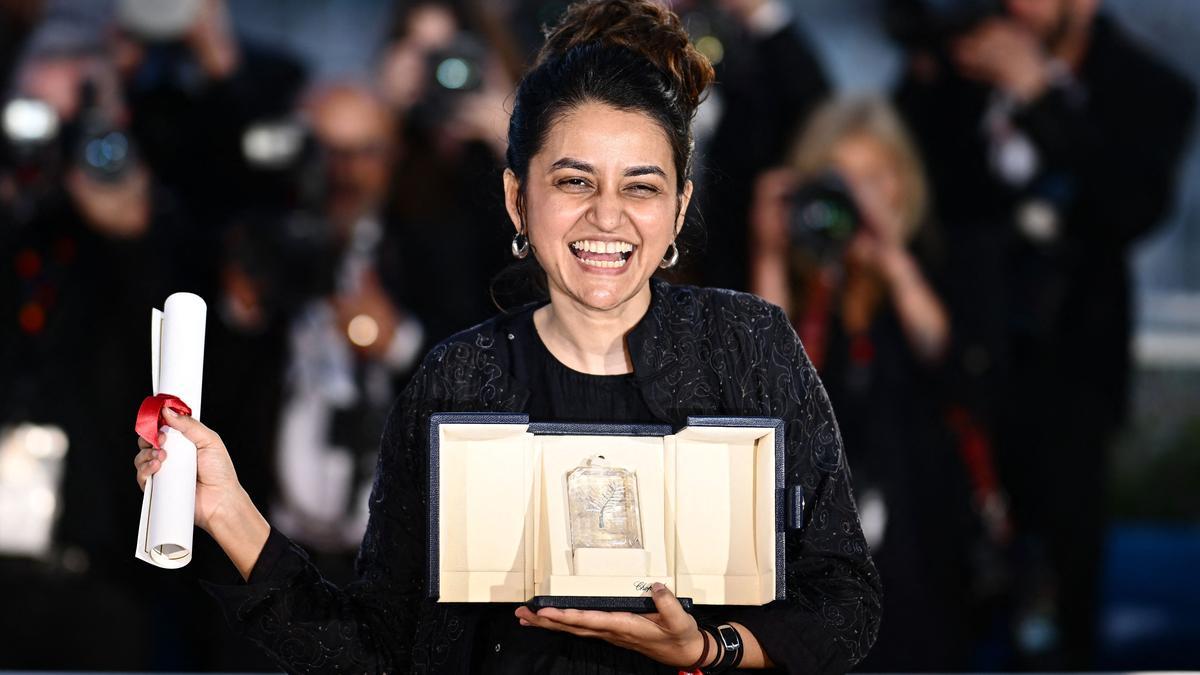
Payal Kapadia’s All We Imagine as Light made history for Indian cinema last night by clinching the Grand Prix at the 2024 Cannes Film Festival. The landmark victory marks the first time in three decades that an Indian film has competed in the main competition at Cannes. The film, a poignant narrative about the journey of two Kerala nurses in contemporary Mumbai, features stellar performances by Kani Kusruti, Divya Prabha, and Chhaya Kadam.
The highly anticipated festival was juried by an illustrious panel led by Greta Gerwig, the acclaimed director of Barbie. The jury also included distinguished personalities from the film industry such as Lily Gladstone, Hirokazu Koreeda, Eva Green, Omar Sy, and Ebru Ceylan. While the Palme d’Or, the festival’s highest honor, was awarded to American director Sean Baker’s Anora, Kapadia’s Grand Prix win represents a monumental milestone for Indian cinema. This achievement echoes the historic win of Chetan Anand’s Neecha Nagar, which won the Palme d’Or (then known as the Grand Prix) back in 1946.
Kapadia, an alumnus of the Film and Television Institute of India (FTII), has garnered international attention in the past with her critically acclaimed documentary, A Night of Knowing Nothing. This film, which explored the FTII student protests and premiered at Cannes in 2021, earned Kapadia the prestigious Oeil d’or (Golden Eye) award. The documentary is a deeply personal work for Kapadia, reflecting her own experiences during the 2015 protests against the appointment of Gajendra Chauhan as FTII chairman. Kapadia’s leadership was instrumental in these protests, which lasted for 139 days and were marked by significant controversy over Chauhan’s qualifications.
The impact of these protests on Kapadia’s career was profound. The revocation of her scholarship and the filing of an FIR against her stood as substantial obstacles. Yet, her resilience and talent emerged unscathed.
. Her 13-minute short film, Afternoon Clouds, was selected for the competition category at the 70th Cannes International Festival in 2017, leading to a reversal of punitive actions by FTII and enabling her to travel to Cannes with institutional support.
Reflecting on her recent triumph at Cannes, Kapadia expressed hope for the future visibility of Indian films on global platforms. “Please don’t wait another 30 years to have an Indian film,” she urged during her acceptance speech, highlighting the need for more regular representation of Indian cinema in international competitions.
The success of All We Imagine as Light sets the stage for its prospects at the Oscars 2025, positioning it as a strong contender for India’s submission in the Best International Feature Film category. The visibility and recognition garnered from Cannes significantly bolster its case for the Oscars. The film festival’s reputation as a precursor to the Oscars is well established, often propelling films into the international spotlight and enhancing their profiles among critics and Academy voters alike.
Kapadia’s growing influence in the international film community cannot be overstated. The Cannes accolade provides a formidable foundation for All We Imagine as Light’s potential journey to the Academy Awards. If selected as India’s submission, the film would enter the Oscars race with considerable momentum, reflecting a broader ambition to elevate Indian cinema on the global stage.
The Cannes Film Festival has consistently been a launchpad for films aiming for Oscar glory, and Kapadia’s success reaffirms this tradition. As All We Imagine as Light continues to capture the attention of audiences and critics worldwide, there is a palpable sense of anticipation for its next chapter—potentially culminating in an Academy Award nomination.
With this historic win, Payal Kapadia has undeniably carved a significant place for herself and Indian cinema on the world stage. As the industry and audiences eagerly await the film’s future endeavors, it is clear that Kapadia’s journey is just beginning. Should All We Imagine as Light secure an Oscar nomination or even a win, it would not only crown a remarkable year for Kapadia but also signal a new era of recognition for Indian storytellers in the global cinematic landscape.












